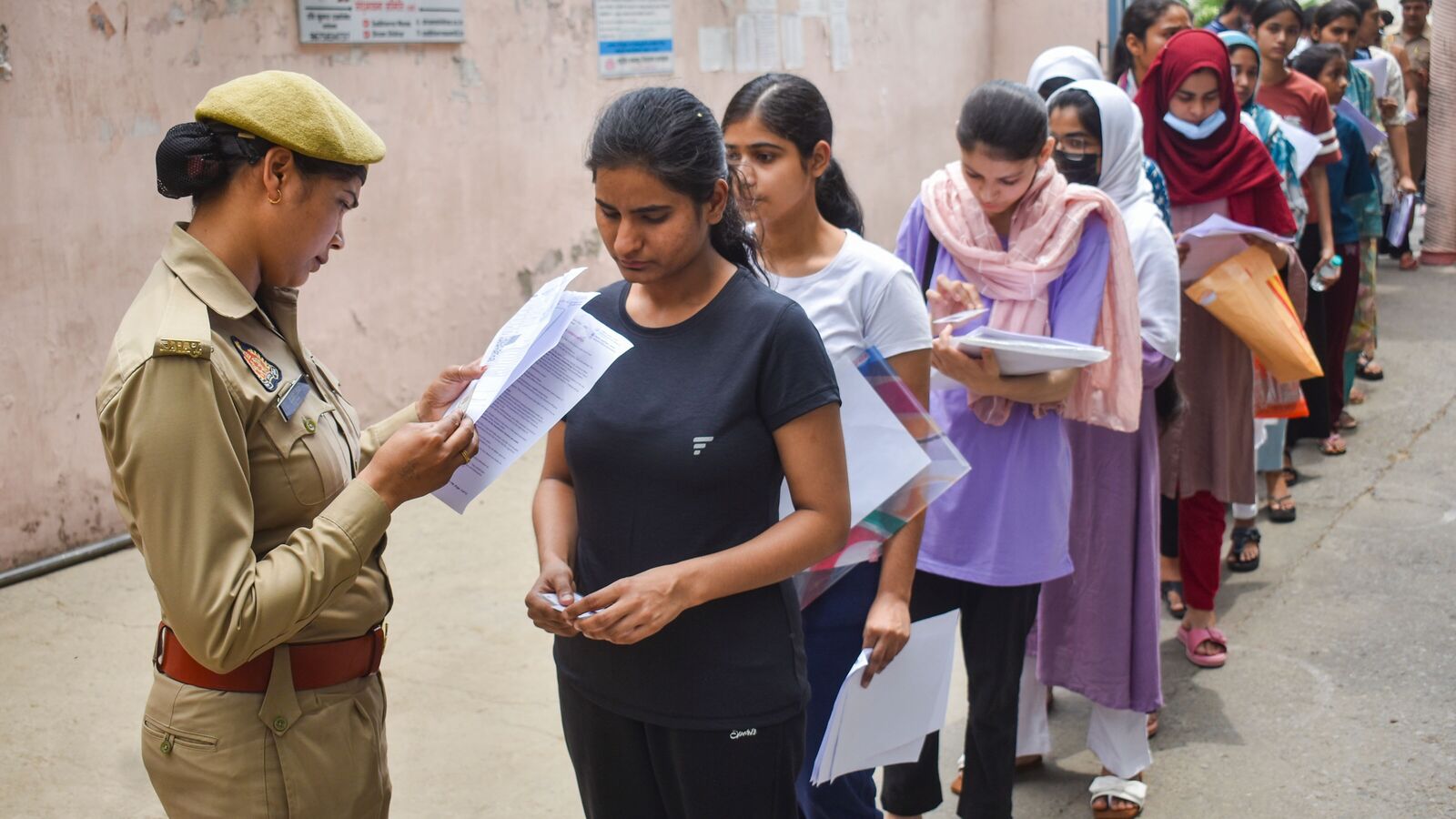[ad_1]
Also read: Neck deep in trouble, will BYJU’S still be able to bounce back?
On the face of it, all was well with FIITJEE. It was founded by an IIT alumni in 1992. The enterprise expanded over time to 74 study centres, two global schools, six world schools, nine junior colleges, and 58 associate schools. Overseas presence in Bahrain, Kuwait, Qatar, Saudi Arabia, Oman, United Arab Emirates, Sri Lanka, Singapore, Malaysia, Indonesia, and Nepal added to its credibility and expanding footprint.
A track record of success
According to media reports, the company is said to have raised ₹100 crore through private equity from Matrix Partners in its first round of funding in 2009. FIITJEE has over 3,200 employees.
The institute trained students for Students coached for various exams, such as JEE Mains and Advanced, CBSE, Olympiads, Kishore Vigyan Protsahan Yojana (KVPY), and National Talent Search Examination (NTSE) universities. It was often compared with segment leaders such as Aakash, Allen, and Toprankers. Many have emerged with top ranks, fellowships and scholarships year-on-year.
For an institute with a proven track record, the puzzle is the sudden slowdown. Solutions such as refund of fees in closed centres, or alternative coaching arrangements have not been forthcoming from the management until it was time to go to the press. The Hindu Business Line had reported earlier that the company announced it would “resume operations at all places within a reasonable time”, but did not respond to its queries or share a turnaround plan.
With two FIRs already lodged, the details are yet to come. Was it money siphoned off? Did the centre managing partners or franchisees let down the apex institute? Or was it a case of operating losses that led to non-payment of salaries and other overheads? As we await disclosures, the time may be right to take a closer look at the EdTech sector, from a regulation viewpoint.
Need for a regulatory body
The focus on institutionalised coaching outside the school or college environment has been in existence for almost 30 years. A 2022 report estimates the total market revenue of the coaching industry in India to be around ₹58,000 crore. For the mammoth ticket size, does the industry have a regulator in place? Surprisingly no. For insurance we have IRDAI, banks and NBFCs are overseen by RBI, for real estate development RERA, media has the Indian Newspaper Society and Indian Broadcasting and Digital Foundation, travel agencies have long had IATA, and for the securities market we have SEBI.
For the coaching business, all we currently have from the government are the Guidelines for Regulation of Coaching Center issued in January 2024 by the Department of Higher Education, Ministry of Education, Government of India.
The preamble to the Ministry’s guidelines reads: “The issues related to the private coaching centers more so in the context of rising student suicides cases, fire incidents, lack of facilities as well as methodologies of teaching have been engaging the attention of the Government from time to time. The number of unregulated private coaching centers in the country continues to grow in the absence of any laid down policy or regulation. These issues have also been raised many times through debates, discussions, and questions in the Parliament. Considering that regulation of +2 level education is the responsibility of State / UT Governments, hence these institutions are best regulated by the State / UT governments.”
Act of parliament – tabled not passed
So now we know the Centre’s view, that private coaching should be under the purview of States. Here’s what is not known to many: A Member of Parliament did table a Bill in the Lok Sabha in 2022-2023. Dilip Saikia, proposed setting up a Board for the regulation of private coaching centres which he termed as, ‘Private Coaching Centres Regulatory Board Act, 2023’.
Looking at the recommendations in the Bill and considering the state of the EdTech sector as we start the year 2025, it can be safely said that the passing of the Act could have made a difference to the vertical. It would have primarily helped students (the success rate in JEE Mains is 1.5% and Common Law Admission Test 5%).
The proposed Act says to specify the fee to be charged from students, lay down the minimum qualifications for teachers to be appointed, and determine the student-teacher ratio in the classes. It also talks about the appointment of counselor, psychiatrist, and physiologist for students. It asks to specify the level of basic facilities to be provided in every coaching centre.
Dilip Saikia provided a valid rationale for the introduction of the Bill. He pointed out in the document that the pressure to score good marks and a rank in the examination impacts the mental health of students. Excessive pressure on children for studying in these institutes has proved to be fatal. According to data, 16 students die of suicide every day in the country due to pressure of examinations. According to the crime records bureau, 10,335 students died of suicide in 2019, 12,526 in 2020 and 13,089 in 2021.
Pressure to perform
This brings us to the epicenter of coaching, Kota, and its plus and minus points. According to a research paper published in the Economic and Political Weekly (EPW), Kota draws over two lakh students annually for entrance exam preparation. Such is the pressure-laden ecosystem, the city has witnessed over 100 student suicides in the last nine years.
The EPW paper brings out even more interesting viewpoints that would be of interest to lawmakers. Below are the key findings from a survey of almost 1,000 students who have gained admission to engineering and law colleges of repute, further to attending a prep program in an organized, formal coaching institute. A majority of respondents conveyed a sense of relief, and agreed that some level of academic burden was lifted upon joining a coaching centre. Not many were aware of a refund policy and had not signed a contract at the time of joining.
More than 75% of engineering and nearly 50% of law students informed their institute had segregation of batches based on merit, which led to an excessive focus on potential toppers and deterioration of mental health among the rest.
On a positive note, a majority of the respondents reported satisfaction with the infrastructure and learning environment. Almost all respondents expressed the need for regulation of the coaching industry.
Lessons for the tuition republic
The prompt or motivation for a qualitative survey published in the EPW is justified by the takeaways aimed at betterment of the industry. As we know and acknowledge, India is referred to as a ‘Tuition Republic’, given the focus on tuition at home, offline centers and online programs. If we were to look overseas, the USA has a National Tutoring Association, which certifies individual tutors. The concept of offline academic coaching centers for competitive exams is virtually unknown in the USA while business coaching in the form of management and professional development is an accepted practice.
This brings us back to the burning question parents are facing currently in North India: would a closure situation have been avoided had a regulatory body been in place at the Central and State level. Bihar has passed the Bihar Coaching Institute (Control & Regulation) Act, 2010, to oversee coaching centres, while other States have issued guidelines.
What are the requirements of setting up an offline coaching centre? Brick and mortar infrastructure such as classrooms, IT hardware and software, provision of amenities, obtaining clearances for fire protection and other safety measures, appointing teachers and gaining access to curriculum or developing study material that is essential for attempting competitive exams. Many of the founders of engineering entrance coaching tend to be engineers themselves.
An insider’s point of view
Varadharajan Sridharan, an engineer with over 24 years experience, and currently pursuing a masters program in edtech, at UCL University, UK, says, “Given the requirement of developing software-based teaching tools for offline or online course deployment, engineers get into the business. Whereas, education is a people problem to solve, not a tech problem.”
Mr. Sridharan says the current unregulated state must come to an end. The industry must form an autonomous body akin to the National HRD Networks or Advertising Standards Council of India, he says. A key starting point would be creating a framework of safeguards for the student at the physical, emotional, mental and psychological level.
When the industry body is set up, and once there is consensus among stakeholders, the collective can approach the government to establish boundaries for the industry and pass such regulations that will help protect the student body, Sridharan says.
How to pick and choose the right institute
With the setback at FIITJEE yet to be resolved, the question many parents ask is how do we choose the right coaching institute for the child? With an autonomous body only in thought and not even on paper, the viable solution of publishing an annual ranking of coaching institutes seems distant at present.
For now, can we look at pedigree of the founder? Yes, and no, because recent episodes have shown graduates from premier institutes too have failed in setting up a successful and long-standing edtech enterprise. Existing brick-and-mortar educational institutions of repute are not likely to enter the business as they view competitive exam coaching as a fringe activity, not part of mainstream education.
Success rates, such as the number of students placed, which was hitherto viewed as an ideal benchmark, again could be a question mark, because not all parents have children who could emerge as toppers. Hence their goal will be how to make a competent child competitive, without being subjected to mental stress and tutor pressure during the learning process.
Taking comfort in the archetype
If the answer is not with parents or students, we must return the question paper to the coaching institutes. The answer could be in self-regulation, in being truthful, participatory and pragmatic, rather than building dreams and fueling aspirations. Full-page advertisements are welcome, closed-door felicitation of achievers is fine, but no more publishing of names and photos and details of all India ranking. For all we know, it is not others’ presence that rankles, but the absence in such honour lists that makes students take drastic decisions.
(The writer is a former journalist and advertising professional now serving as a communications consultant. Views expressed are his own).
Published – January 29, 2025 07:08 pm IST
[ad_2]
Source link





